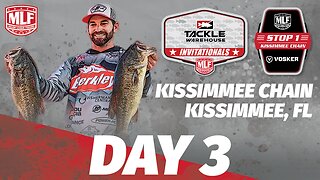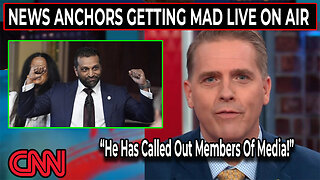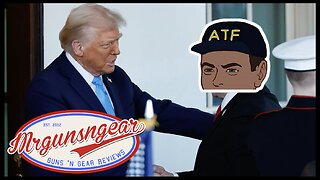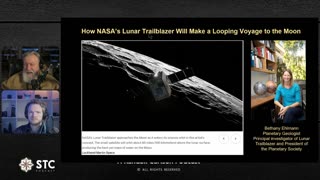Premium Only Content

Mahto Tribal Council DC Trip 02-21-25
Quick recap
The meeting covered a wide range of topics, including legal matters, conspiracy theories, and political discussions. The Chief shared his views on sovereignty, the role of law enforcement, and various interpretations of historical events and legal documents. Additionally, the group discussed business strategies, personal experiences with local government, and plans for future actions and meetings.
Next steps
Chief to travel to Washington D.C. to seek affirmation of the Montaux Nation or appointment to a DOGE committee.
Chief to raise approximately $2,000 for the D.C. trip.
Albert and Chief to visit Nick's salon in Winlock after the men's breakfast meeting.
Nick to gather a small group at his salon to discuss legal and tribal matters with Chief.
Nick to have his salon manager Micah present for the discussion with Chief.
Chief to educate interested individuals about legal rights and tribal nation concepts.
Nick to consider re-characterizing his business operations as private to avoid city interference.
Nick to investigate proper land ownership documentation in the county recorder's office.
Summary
Chief's Activities and Conspiracy Theories
Chief discusses his recent activities, including visiting Fort Lewis to offer assistance to the JAG office regarding cartel operations and attending a meeting in Gig Harbor about a disputed plea agreement. He mentions an upcoming hearing on March 13th and plans to travel to DC to address alleged defamation of his character. Chief then shifts the conversation to discuss various conspiracy theories, including claims about Biden's presidency being a military operation and Trump's executive orders from 2017. He suggests that these orders were designed to catch election interference and turn the elites' plans against them. The conversation touches on topics such as FEMA camps, biological weapons, and biblical prophecies.
Legal Status and Vatican's Role
Chief discussed the legal status of the American population and the role of the Vatican in the International Criminal Court. He explained that the 14th Amendment was passed to give freed slaves legal status, but it also allowed for the enslavement of anyone convicted of a crime. Chief also discussed his experience with the legal system, including his interactions with a judge and a prosecutor. He emphasized his loyalty to the Republic and his refusal to obey unlawful orders. Chief also mentioned his plans to go to DC to either get his weapons back or to have his name cleared.
Law Enforcement, Nobility, and Martial Law
The Chief discussed the concept of nobility and the role of law enforcement officers in society. He argued that many law enforcement officers are unaware of their true role and are instead serving the interests of a corporate entity. He also mentioned the 13th Amendment and the original Constitution, suggesting that these documents have been altered to suit the interests of the corporate entity. The Chief also discussed the concept of martial law and the potential for a military operation to round up those deemed a danger to society. He offered assistance to the government in rounding up cartel members, but stated that he would continue his efforts regardless of whether his help was accepted.
International Criminal Court Threats Discussed
The meeting discussed the threat of the International Criminal Court targeting the United States and Israel. The court, established by the Rome Statute, is conducting illegitimate and baseless actions, issuing arrest warrants without jurisdiction. The executive orders from 2017 and 2020 were examined, with the renewed orders questioning why they were not dismantled. The meeting also touched upon the Vatican's role in the financial system and the creation of money in a bankrupt economy. The participants also discussed the authority of the legal system and the concept of human trafficking disguised as law.
Chief's Views on Republic and Law
In the meeting, Chief discussed his views on the Republic, his rejection of the Biden Administration's interpretation, and his stance against the Bar Association cartel. He emphasized the importance of education and personal responsibility, suggesting that those unwilling to educate themselves deserve to be slaves. He also delved into the Servicemen's Protection Act of 2002 and the United States' stance against the International Criminal Court, arguing that the US is not a corporate entity but a republic.
Conspiracy Theories and Political Events
The discussion focuses on various conspiracy theories and interpretations of political events. The speaker suggests that Trump's actions, including his Mar-a-Lago raid and visit to North Korea, were part of a larger military operation to wake people up to government weaponization. They also discuss the concept of "protected persons" under U.S. law and speculate about potential alliances with other countries. The conversation touches on historical events and treaties, linking them to current political situations.
Immigration Act and Military Authority
Chief discussed the implications of the term "alien" in the context of the Immigration and Nationality Act of 1952, emphasizing that it refers to a non-US person. He also touched on the concept of military authority and its combination with Federal authority, using President Trump as an example. Chief suggested that Trump's actions, such as securing borders, could be interpreted as a strategic move against the Bar Association members who are part of a foreign cartel. He also mentioned the International Court of Claims for Federal Contractors in Washington, DC, and the significance of driver's licenses as corporate entities. The conversation ended with Chief expressing his willingness to confront anyone who accuses him of being a criminal, using the Constitution and the Bible as his defense.
Foreign Armed Civilian Army Plans
The chief discusses the concept of a foreign armed civilian army controlled by Bar Association cartel members operating illegally in the United States. He explains his plans to challenge the authority of local governments and courts, claiming superior legal title to their land as the leader of an American Indian nation. The chief also touches on the importance of understanding one's allegiance to either the corporate United States or the Republic, and emphasizes the need for effective communication and peaceful resistance against perceived injustices.
Contacting the Chief and Global Events
The Chief discusses how to contact him for interviews or consultations, mentioning that Albert handles scheduling. He then shares information about a renaming of the Gulf of Mexico to the Gulf of America, which he claims gives the US legal jurisdiction over the Panama Canal. The Chief also expresses his belief that recent global events are part of a planned military operation involving Trump, Putin, and Xi Jinping. He concludes by discussing his personal experiences with law enforcement and the legal system, emphasizing his view that many officers blindly follow orders without questioning their validity.
C Corporation Benefits and Strategy
Chief explains the benefits of using a C Corporation instead of an LLC for raising capital and conducting business. He describes how a C Corp allows for issuing stock certificates to banks as a form of investment rather than a loan, potentially leading to better financial terms. Chief also outlines a strategy for structuring business operations using a C Corp, including leasing personal property to the corporation and utilizing a holding company and foreign grantor's trust to protect assets. He emphasizes the importance of conducting legitimate business activities to avoid fraud accusations and mentions tax advantages of this structure, such as creating passive income streams and minimizing personal tax liability.
Asserting Ownership in Commercial Building
In the meeting, Nick shared his experiences with owning a commercial building in Windlock, which he had renovated and rented to a mental health clinic called Cascade. However, the city mayor and city planner intervened, causing an uproar and forcing Nick to obtain a commercial electrical outfit for the work. Chief then guided Nick on how to assert his ownership rights, suggesting he should record his land description in the Recorder's Office and potentially re-characterize the nature of his business operations. Albert suggested Nick could learn more about the language and system by spending time around it.
Sovereignty and American Indian Relations
In the meeting, Chief discussed his views on sovereignty and the relationship between the US government and the American Indian community. He expressed his willingness to educate others about these issues and his desire to peacefully and lawfully participate in public functions. Chief also mentioned his plans to raise funds for a trip to DC to either get affirmation of the nation or help clear up cartel members. Nick and Albert agreed to meet with Chief at his salon for further discussions.
-
 LIVE
LIVE
Major League Fishing
4 days agoLIVE Tackle Warehouse Invitationals, Stop 1, Day 3
260 watching -
 23:34
23:34
marcushouse
10 hours ago $11.50 earnedBREAKING: Starship Launch IMMINENT – But What’s This SURPRISE Flight 9 Plan?! 🚀🔥
71.8K8 -
 8:43
8:43
Film Threat
1 day agoTHE MONKEY | Film Threat Reviews
72.5K3 -
 15:55
15:55
TSPLY
1 day agoThe Media Is Very Afraid Of FBI Director Kash Patel
63K45 -
 6:57
6:57
Cooking with Gruel
23 hours agoMake Cheese Great Again
43.3K13 -
 5:17
5:17
Mrgunsngear
1 day ago $8.45 earnedPresident Trump Has Appointed A New ATF Director
47.9K37 -
 48:17
48:17
Athlete & Artist Show
8 days ago $4.76 earnedS5E1: Chucky Announces First Kid, 4 Nations Face Off, and more!
71.2K4 -
 38:30
38:30
hickok45
11 hours agoSunday Shoot-a-Round # 269
90.8K18 -
 1:39:55
1:39:55
Squaring The Circle, A Randall Carlson Podcast
1 day ago#040 Humanity's Expansion Into The Cosmos: A New Age - Squaring The Circle
47.5K6 -
 12:54
12:54
ariellescarcella
21 hours agoYou're NOT Queer, Just Annoying And Boring
38.6K25